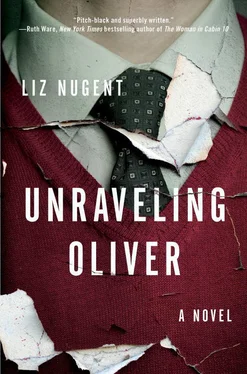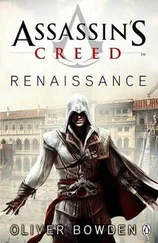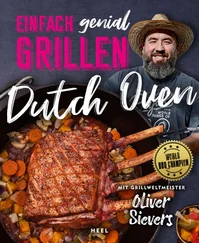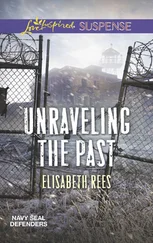OLIVER
My earliest memories are confused. A dark room in a Gothic house. I was alone for most of the day, but sometimes an old lady gave me food and was kind. Her name, I think, was Fleur, or perhaps that is just a name I gave her. I remember being told that I must keep myself tidy because my father was coming up to see me, but I accidentally spilled some red juice on my shirt and I wasn’t allowed to see him as a result. Fleur was French, and I think I may have spoken French before I spoke English. She taught me to read a little in both languages. She hugged me sometimes, and called me her pauvre petit coeur . I recall my father came to my room one time and Fleur was nervous. He stared at me and then roughly pulled at me, examining my hair, my teeth. What was he looking for? I cried then, and he shouted at the woman and left the room slamming the door behind him.
Fleur told me that my father was getting married to a lady called Judith. I saw her once from the top of the stairs. She was beautiful and very fair. I remember wishing that I could be blond like her. She didn’t see me and I never spoke to her. I wasn’t allowed to attend the wedding.
My next memory is of Fleur packing a suitcase for me, and she was pretending to be happy but her eyes were wet. She told me that I was going on a great adventure and that I would have lots of playmates. I was excited, but at the gates of the boarding school I realized that she wasn’t coming with me, and I grabbed her legs and begged her not to leave me there, but a gentle priest lifted me in his arms and distracted me with a toy truck, and when I turned to show it to Fleur, she was gone.
I was one of the youngest boys in the school, but I settled in well. I wasn’t used to much attention and was mesmerized by the constant bustle of activity. I wasn’t as homesick as the other boys, because, as I now know, one isn’t sick for home, but for the people in it. I pined a little for Fleur, but not too much. I wasn’t the most popular boy and I wasn’t at the top of the class, but I tried my hardest. I heard from other boys about living with mothers and fathers and siblings, and I came to understand that fathers were often stern and that the only way to appease them was to get good report cards.
But regardless of how hard I studied and how good my report card was, I failed to win my father’s approval.
I wasn’t permitted to go home during the holidays and rattled around with the priests for the summer months. Every other year, my father would visit and the priests and I would go into a frenzy of preparation. They were as in awe of him as I was, because it was a diocesan school and my father was in control of the finances. The school depended upon his decisions for funding. I would sit on one side of the headmaster’s desk, and my father would stand behind me, refusing to sit or take tea. I would be as still as I could but couldn’t stop my hands from buttoning and unbuttoning my shirt cuffs. Father Daniel would tell him that I was doing well, even when I wasn’t. My father would ask to inspect my report cards and inquire about my general health, and then he would leave, without touching me or looking in my direction. Father Daniel was embarrassed for me and would try to make a joke of my father’s distance.
“Isn’t he a busy fella, your dad? Eh?”
It was Father Daniel who told me that I had a younger brother, Philip, born a year after my father and Judith wed. He is blond like his mother. He joined the primary school as a day pupil when I was in the senior boarding school. I watched him grow up in a way, because I could see my father’s house from a window in the top hallway and I had an almost permanent loan of Stanley’s binoculars, with which I spied on my father’s new family. I watched my brother come and go from my father’s house; watched Judith pottering in the garden; watched them all out in the driveway, admiring my father’s new car together. I envied Judith and Philip.
• • •
School sports days were a particular kind of torture. In the first few years, when I thought my father might actually turn up, I tried my hardest in the weeks leading up to the event, rising early and doing extra training. If my father wouldn’t acknowledge my academic achievement, I thought perhaps he might be impressed by my athletic prowess. In the early days I won medals and trophies every year, but my father never appeared.
The other boys’ families would descend upon the school, the mothers dolled up and reeking of perfume so strong that it would make your eyes water, accompanied by the fathers in their highly polished cars. There would be sulking or boisterous siblings, and small babies swaddled in pastel shades and shrieking and tantrums. Significantly, there would be a great deal of hugging and affectionate ruffling of hair and manly handshakes. And after the sporting events, there would be a grand picnic on the lawns, where the families would sit together in huddled groups. Father Daniel did his best to distract me from my isolation on these days, employing me in tasks of “great importance.” Even when I didn’t win a medal, he would single me out for special mention.
I never gave up hope that my father might one day remember me. In my fantasy, he suddenly realized that he was wrong about me and that I wasn’t a bad boy. He would come to the school and take me home to live with him and tell me that I was a wonderful son.
And then in my penultimate year at St. Finian’s, I was overjoyed finally to see my father arrive in a black Mercedes with Judith by his side. They could have walked, but I think the car was a status symbol that needed to be displayed. They parked up in the lower parking lot and I ran down the lane toward the car, my heart pounding, barely hoping that my fantasy might become reality. My joy turned to bitter dismay when I saw Philip climb out of the car behind them and I remembered that my father was there for him, for Philip. My pace slowed and I stopped in the middle of the lane and didn’t know whether to turn back or not, but it was too late. My father looked up and saw me. He nodded quickly at me and raised his hand, and I thought for a moment that he was summoning me, but in the same instant he looked over at Judith, who just looked startled, and what could have been a wave of acknowledgment revealed itself to be a gesture of dismissal and I knew I wasn’t welcome in their company. For the rest of the day, I feigned illness and retired to the infirmary until the festivities were over.
The following year, I didn’t enter any event, pleading exam pressure. I stayed in the study hall for the entire day, trying to block out the sound of the loudspeaker, the cheering, and the laughter. Stanley came in later with a cake his mother had baked especially for me. A giddiness overtook me and I indulged in a food fight with him, tearing the cake apart and flinging fistfuls of jam and sponge at him, at the walls, at the light fixtures and the portraits of former masters. We laughed until our sides were sore, but our glee was different. Mine was bordering on hysteria.
• • •
Stanley was a friend, a real friend back then. I knew that I was different from the other children by the time I was in the senior school. They talked of holidays and cousins and fights with their sisters and Christmas presents and politics at the family dinner table. I had nothing to offer in these conversations. I was also set apart by my obvious lack of money. My uniforms came from the school’s lost-and-found office, and I had no money for the snack shop. There was an unspoken agreement that Father Daniel would provide whatever I needed. I don’t know if this was instigated by my father or if it was a simple act of kindness on Father Daniel’s part. I suspect the latter. But a teenage boy often has more wants than needs, and I couldn’t ask Father Daniel for stink bombs or plastic slingshots or jawbreakers or dirty magazines.
Читать дальше












